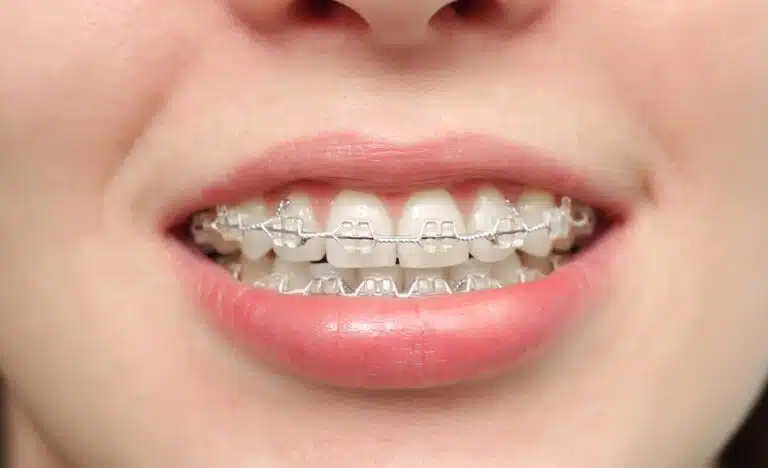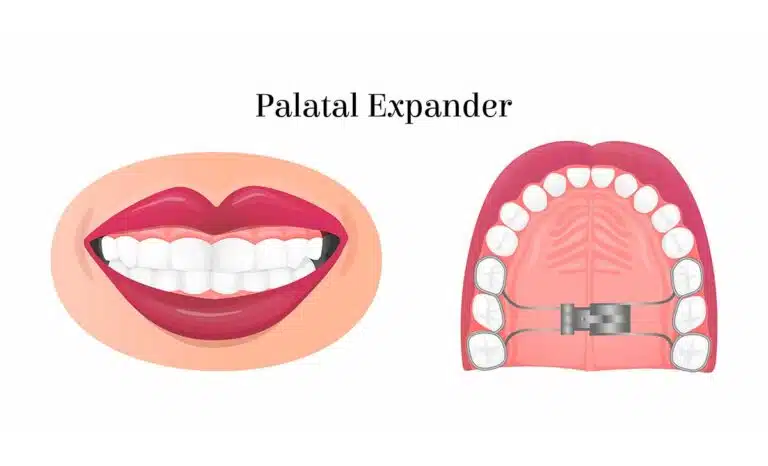Orthodontic treatment is a long-term investment in your dental health and appearance. However, unexpected emergencies can arise during your orthodontic treatment, such as a broken bracket, a loose wire, or discomfort from braces. While these situations can be inconvenient and uncomfortable, there are steps you can take to handle these common orthodontic issues between appointments.
At Elara Orthodontics, we understand that orthodontic emergencies can occur at any time, which is why we are committed to providing our patients with the best care possible. In this blog post, we will discuss common orthodontic emergencies and provide tips on how to handle them until your next appointment.
See also Cost of Braces in Houston
Broken Brackets
A broken bracket can occur due to eating hard or sticky foods, trauma to the mouth, or normal wear and tear on your braces. If a bracket comes loose or breaks off, don’t panic. Contact your orthodontist at Elara Orthodontics as soon as possible to schedule an appointment. In the meantime, if the bracket is still attached to the wire and is causing discomfort, you can try to gently push it back into place using a clean pair of tweezers or a Q-tip.
Loose Wire
If a wire becomes loose or pops out of the bracket, it can cause discomfort and irritation to the inside of your mouth. To alleviate the discomfort, try using orthodontic wax to cover the exposed wire or gently push the wire back into place using a clean pair of tweezers. If the wire continues to cause discomfort, contact your orthodontist at Elara Orthodontics to schedule an appointment.
Discomfort or Pain
Discomfort or pain is a common issue during orthodontic treatment, especially after adjustments or the placement of new wires. To manage the discomfort, try using over-the-counter pain relievers, such as ibuprofen or acetaminophen. You can also rinse your mouth with warm saltwater to soothe sore areas.
Protruding or Broken Wires
Protruding or broken wires can cause discomfort and irritation to the inside of your mouth. To alleviate the discomfort, try using orthodontic wax to cover the exposed wire or gently push the wire back into place using a clean pair of tweezers. If the wire continues to cause discomfort, contact your orthodontist at Elara Orthodontics to schedule an appointment.
Lost or Broken Retainers
Retainers are essential for maintaining the results of your orthodontic treatment. If your retainer becomes lost or broken, contact your orthodontist at Elara Orthodontics as soon as possible to schedule an appointment. In the meantime, continue to wear your last set of retainers to prevent any shifting or movement of your teeth.
In conclusion, orthodontic emergencies can happen at any time, but knowing how to handle common issues can help alleviate discomfort and prevent further damage to your braces. At Elara Orthodontics, we understand the importance of providing our patients with the best care possible. If you experience an orthodontic emergency, don’t hesitate to contact us to schedule an appointment. As the best orthodontist in Richmond Texas, we are here to help you with all of your orthodontic needs.
10 commonly asked questions and answers about orthodontic emergencies
- What are some common orthodontic emergencies? A: Common orthodontic emergencies include broken brackets, wires poking out, loose bands, and injuries to the mouth.
- What should I do if my child’s bracket comes loose? A: If a bracket comes loose, try to remove it if possible and save it for your next appointment. If the bracket is still attached to the wire, cover it with orthodontic wax to prevent irritation.
- What if a wire is poking out of the back of my child’s braces? A: If a wire is poking out, try to use a pencil eraser or a cotton swab to push it back into place. If this is not possible, cover the end with orthodontic wax to prevent irritation.
- What if my child’s braces are causing pain? A: Over-the-counter pain relievers such as acetaminophen or ibuprofen can help alleviate the pain. You can also try rinsing your mouth with warm saltwater to reduce inflammation.
- How can I fix a loose band? A: If a band comes loose, save it and bring it to your next appointment. In the meantime, you can cover the band with orthodontic wax to prevent irritation.
- What if my child’s wire breaks? A: If a wire breaks, cover the end with orthodontic wax to prevent irritation and call your orthodontist to schedule an appointment.
- What if my child loses a spacer? A: If your child loses a spacer, call your orthodontist as soon as possible to schedule a replacement.
- Can I fix my child’s braces at home? A: It is best to leave any orthodontic repairs to a professional. Attempting to fix braces at home can cause more damage and result in additional expenses.
- How can I prevent orthodontic emergencies? A: Encourage your child to avoid hard, sticky, or chewy foods that can damage braces. Have your child wear a mouthguard during sports and other physical activities to protect their teeth and braces.
- How much will it cost to fix an orthodontic emergency? A: The cost of fixing an orthodontic emergency will vary depending on the severity of the issue. It is best to contact your orthodontist to get an estimate of the cost.
5 Tips for Parents of Children with Orthodontic Emergencies
- Keep calm and assess the situation: In the event of an orthodontic emergency, the first step is to remain calm and assess the situation. Determine the severity of the issue and contact our office for guidance on what to do next.
- Know what to do in case of a broken bracket or wire: If your child’s bracket or wire breaks, have them gently remove any broken pieces from their mouth to prevent injury. Apply orthodontic wax if needed, and call our office to schedule a repair appointment as soon as possible.
- Be prepared for discomfort: Braces and other orthodontic appliances can cause discomfort, especially in the first few days after an adjustment. Encourage your child to eat soft foods and take over-the-counter pain relievers as directed by our orthodontist.
- Practice good oral hygiene: Proper oral hygiene is essential for healthy teeth and gums during orthodontic treatment. Make sure your child brushes and flosses regularly, and use interdental brushes or floss threaders to clean around braces and other appliances.
- Attend regular appointments: Regular appointments with our orthodontist are crucial for monitoring your child’s progress and detecting any issues that require attention. Be sure to keep all scheduled appointments and contact our office if you have any concerns between visits.
By following these tips, you can help ensure that your child’s orthodontic treatment is successful and free from emergencies. Don’t hesitate to contact Elara Orthodontics if you have any questions or concerns about your child’s orthodontic care.
When to Call 911
In some cases, an orthodontic emergency may require immediate medical attention beyond what a dental professional can provide. In such situations, it is important to call 911 or seek emergency medical care. Here are some examples of situations that may require immediate medical attention:
- Severe pain that is not relieved with over-the-counter pain medications
- Excessive bleeding that does not stop after applying pressure for 10-15 minutes
- Swelling that affects breathing or vision
- Trauma to the face, head, or neck that causes loss of consciousness, confusion, or difficulty breathing
- Inability to open or close the mouth properly
- Objects stuck in the throat or airway, causing difficulty breathing
- Allergic reactions to orthodontic appliances or medications that cause difficulty breathing, swelling, or hives
If you or your child is experiencing any of these symptoms, do not hesitate to call 911 or seek emergency medical care. It is better to err on the side of caution and seek prompt medical attention when necessary.




